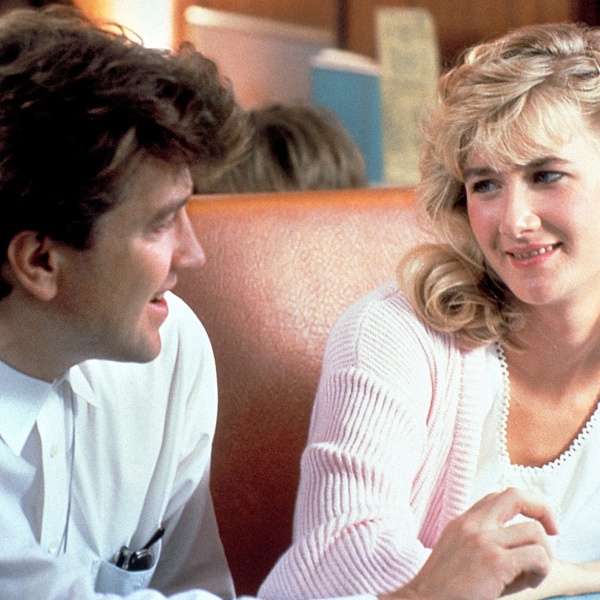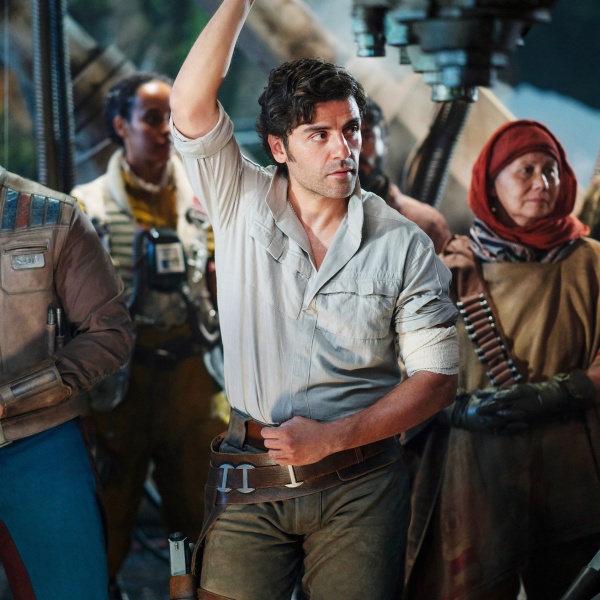Unlike Cannes‘ industry-catered competition section, the festival’s independent sidebar Directors’ Fortnight defines itself around audience outreach.
Headquartered halfway down the Croisette, equidistant from the Palais des Festivals, where the official selection screens for an industry-only crowd, Fortnight embraces the sprawl. The 56th edition programs 21 features and another eight shorts from May 15-25 (starting with Sophie Fillières’ posthumous “This Life of Mine”) while bringing select titles to many theaters far from the main drag.
That same selection will also offer the easiest point of access for so many locals, for whom Fortnight is often synonymous with Cannes, and who can always count on a 30-minute Q&A after each screening. Further afield, however, that clarity of identity begins to fade.
For one thing, the showcase doesn’t have a recognizable pitchman. In the time since Thierry Frémaux took over the official selection in 2004, Directors’ Fortnight has seen four artistic directors come and go, and is now onto its fifth in former distributor and publisher Julien Rejl. As Rejl sees it, such outward instability is a product of his festival’s other north star as a haven for filmmakers, born of the protests (and the cancelled Cannes) of May 1968, and ever run by the trade union for French directors.
“The filmmakers of 1968 joined together for a political project to create a parallel selection that ensured all an equal chance,” Rejl told IndieWire. “Only when your employer is a collective of filmmakers a certain degree of changeover is inevitable, because the union’s leadership is also ever changing, as filmmakers come-and-go in to focus on their next projects. That will, by definition, have an impact on our status.”
Signed to an annual, renewable term, Rejl wanted to leave a commensurate impact when he was named to his post last year, making his most eyebrow-raising programing choices with what he rejected. As is ever the case, when a number of higher-profile titles were passed over by the official selection, all eyes turned to Director’s Fortnight — and the incoming artistic director bristled at the implication.

“Several films weren’t shown to us before the official selection press conference, because we were told they weren’t for us,” he said. “And I don’t have a problem with that; everyone has their own strategy. But I did not wish to enter into an opportunistic relationship when those same teams called asking for a spot. I don’t want to take big names just to have them. Instead, as an institution, we’re always thinking about our editorial line and our position in Cannes. And above [all], we are not the official selection.”
The artistic director thought it essential to have a gender-balanced selection committee. (While in French, the festival itself has opted for the gender-neutral Quinzaine des Cineastes after decades as the male-coded Quinzaine des Realisateurs, though the English moniker has always been neutral.) But when it comes to curation, Rejl approaches quotas with the same distrust he has for festival-world horse-trading.
“Our challenge is simple,” he said. “We have to discover. We cannot be too political, trying to please all the major forces at play. We’re here to find talents that are otherwise off-the-radar and then put them on a springboard.”
When sifting through 1,600 submissions, or selecting Takeshi Kitano to design this year’s poster, Rejl and team wanted each element to speak with an idiosyncratic voice. That’s all in service of Fortnight’s promise of an alternative perspective in the wider Cannes ecosystem.
By way of programing, that has meant an aversion to films that bear too much of the imprint of screenwriting labs, and a wariness of projects that treat social issues with studious respectability. In other words, the kind that guarantees a long passage on the festival circuit and sometimes, for the lucky few, an Oscar submission for International Feature Film.
Instead, Rejl offers a home to odd ducks and enfants terribles, to directors walking in the footsteps of Fortnight graduates Nagisa Ōshima, Werner Herzog, Rainer Werner Fassbinder, and Chantal Akerman. Still, lest we think Rejl’s taste runs too highbrow, he then brought up “The Fall Guy.”
“My dream would be to show a blockbuster like that on the same day as the latest from Hong Sang-soo,” Rejl said. “I’m looking for diversity in both genres and scales, but I see no hierarchy. All these films and all these genres can communicate without another to create a surprise. There just needs to be a strong and recognizable directorial voice.”
The closest blockbuster approximation in this year’s crop might be “Ghost Cat Anzu,” an animated offering likely to draw big crowds when “Godzilla Minus One” and “The Boy and the Heron” heavyweight Toho releases the film in Japan this summer. (GKIDS will handle the film’s U.S. release later this year.)

“Here is a crowd-pleasing, family film that reexamines popular codes with incredible precision in dialogue, characterization, and technique,” Rejl said. “The filmmakers used rotoscope, so every single shot is framed in the same way as you would live-action, showing insane attention to composition and film language. You can feel the artistic influence of Miyazaki and Takahata … [with] this irreverent comedy about a giant burping, farting cat.”
Directed by Chiang Wei Liang and You Qiao Yin, the Taiwanese film “Mongrel” offers a rather different proposition, exploring the issues of illegal trafficking and undocumented immigration without a hint of social realism. “In other words, not a single frame feels like it comes from another director,” said Rejl. “Every image and composition are put to the service of these filmmakers’ visions and personalities, making the film irreducible and unique in its own visual language.”
And on the U.S. front, Rejl is particularly enthused by “Eephus” and “Christmas Eve in Miller’s Point,” two projects produced by L.A.-based collective Omnes Films. (Indeed, filmmaker Carson Lund had a hand in both, making his feature directorial debut with the melancholy tale of baseball and male-bonding “Eephus,” while shooting Tyler Taormina’s warmhearted family saga “Christmas Eve in Miller’s Point.”)
“The film, for me, evokes Tsai Ming-liang,” Rejl said of “Eephus.” “It’s [director Lund’s] own version of ‘Goodbye, Dragon Inn,’ using the tools of cinema to trace the end of a certain world and social order, only here transposed to baseball — and as a Frenchman, I don’t know a thing about baseball! Only so few sports films use such a sparse narrative to share the joys, sorrows, conflicts, and camaraderie of a group of characters for whom we might find unsympathetic from a certain point of view.”
“Eephus” shares two recognizable character actors from “Uncut Gems,” Keith William Richards and Wayne Diamond. That the Fortnight also played an outsized role in launching Josh and Benny Safdie by selecting both “The Pleasure of Being Robbed” and “Daddy Longlegs” is not lost on Rejl. If anything, it only feeds the artistic director’s desire to break in some Safdies of his own.

“That’s one of my main goals,” he said. “Later this year, I’d like to spend quite a bit of time in New York and Los Angeles, meeting filmmakers, producers, and people from all over the industry, searching for new American independent cinema. I know that distributors in France have recently found it difficult to discover strong new proposals that are assertive, daring and divisive.”
Though Rejl might have iconoclastic programing tastes, his former career as a distributor puts his view on streamers in line with Cannes’ governing orthodoxy. “I don’t have anything against these platforms,” he said. “But I think that at some point, you just have to be a little bit coherent in your logic. If you think your film should be centralized on a platform, then you shouldn’t ask for a festival’s big screen just to promote said platform. As far as I’m concerned, since we’re showing films at Cannes then this experience should be perpetuated.”
In fact, the Fortnight director has many plans on that front, readying a roadshow of this year’s selection that will take over 30 screens in France as well as spots in Italy and Brazil, the latter organized in partnership with Kleber Mendonça Filho. When all that is said and done, Rejl next wants to bring Directors’ Fortnight stateside. The festival is already in discussions with interested parties on both coasts, with provisional plans to bring about half of this year’s selection to American audiences later this year.
“When you attend the Fortnight, you participate,” said Rejl. “Today, festivals need to evolve their missions. You can’t just say, ‘I’ve finished my job, my selection is made, I’m going to Cannes, we’re having a party’ — not when so many films still struggle to find an audience. From now on, the job doesn’t stop here.”





